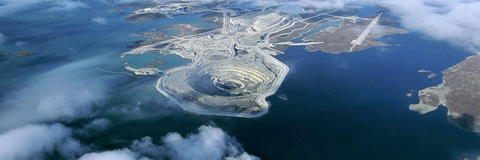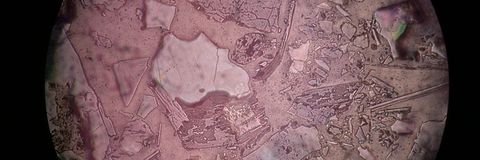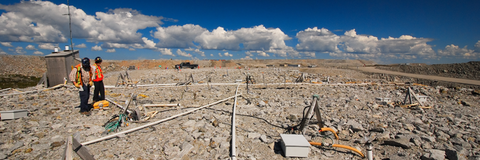


Welcome to Groundwater Geochemistry and Remediation Research Group
Group Biography
The Groundwater Geochemistry and Remediation Group (GGR) at the University of Waterloo, led by David Blowes and Carol Ptacek, is committed to advancing the understanding of the fate, transport and remediation of contaminants including metals, metalloids, pathogens, nutrients and emerging contaminants in groundwater. This research includes detailed field investigations, laboratory studies, development of reactive barriers and other passive remedial solutions, application of non-traditional isotope techniques and development of mathematical models to predict the complex geochemical behaviour of these systems.
We have conducted studies at mine sites, mine-waste disposal facilities, wetlands, on-site sewage disposal systems and other industrial sites. Laboratory studies often focus on reaction mechanisms utilizing batch and column experiments. Mathematical modeling has focused on the development of fully-coupled reactive transport codes that can account for thermodynamic and kinetic controls on chemical reactions between groundwater and the aquifer material. Remediation research is focused on the development of passive, in situ, methods including permeable reactive barriers.
NSERC Toward Environmentally Responsible Resource Extraction Network (NSERC-TERRE-NET)
The NSERC-TERRE-NET Program, led by David Blowes, is currently recruiting undergraduate co-op, MSc and PhD students, and Post-doctoral Fellows for exciting field, laboratory, and modelling research projects made available through this recently-awarded NSERC Strategic Partnership Grants for Networks program. NSERC-TERRE-NET is a multi-institutional and multi- and trans-disciplinary research Network comprised of 15 co-investigators from 7 universities across Canada, with the overarching goal of ensuring the:
Environmentally responsible, socially acceptable extraction of mineral and energy resources using cutting-edge approaches and technologies.
This initiative is supported by numerous partner organizations, as well as Canadian and international research collaborators. Qualified candidates with backgrounds in geochemistry, hydrogeology, mineralogy, reactive transport modelling, and/or environmental microbiology are invited to contact David Wilson to inquire about available projects.
News
News Release: GGR MSc Candidate Paul Sherk places first overall in UW GRADflix 2024 Video Contest
Paul Sherk, Master of Science Candidate in the Groundwater, Geochemistry and Remediation group has won first place is the University of Waterloo 2024 GRADflix competition for his video, Permeable reactive barriers: A strategy for acid mine drainage remediation.
News Release: Method for containing toxins from mine waste could protect drinking water, prevent cancer
Imagine an abandoned mine site, surrounded by dead trees and dotted with dark, red ponds with no signs of aquatic life. This is the result of mine waste left in the environment that gets weathered by water and air. With exposure to the elements over time, the waste produces toxic substances such as arsenic and lead.
Under the supervision of professors David Blowes and Carol Ptacek, and hydrogeochemist Jeff Bain, Aria Zhang assessed the effectiveness of a cover of layers of soil, sand, and gravel placed over mine waste near Timmins, Ontario, in 2008.
News Release: Bacteria, glass, and cement could be long-term Giant Mine solutions
Researchers have identified naturally occurring bacteria at Giant Mine that could prove useful in permanently dealing with the site’s toxic legacy.
Giant Mine operated on the outskirts of Yellowknife from 1948 to 2004. The former gold mine now sits on 237,000 tonnes of arsenic trioxide – a highly toxic dust stored in underground chambers.
Arsenic trioxide dissolves easily in water, but it’s possible to convert the substance into a mineral known as arsenic sulfide that is up to 10,000 times less soluble, potentially providing a safer means of long-term storage.